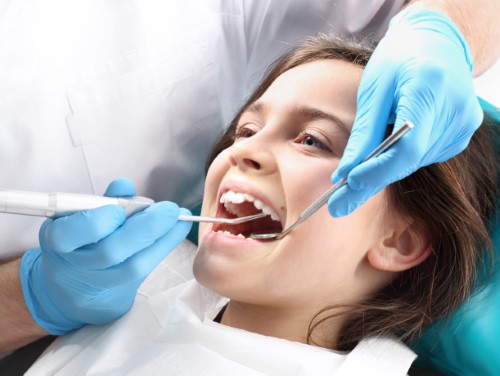Cleanings

Introduction to Dental Cleanings
Our dental cleanings, conducted by our dentist or skilled hygienists, not only prevent cavities and gum disease through the removal of plaque and tartar but also serve as an opportunity for early detection of oral health issues, contributing to long-term oral health and well-being with personalized home care advice.
Our Process
Pre-Cleaning Checkup
The hygienist or dentist will start with an initial oral examination. They will inspect your teeth and gums for any signs of gingivitis (inflamed gums), cavities, or other potential concerns.
This step may involve discussing any recent changes or issues in your dental health or reviewing your dental history.
Removal of Plaque and Tartar
Using dental tools like a scaler, the hygienist will gently remove plaque and tartar around your gum line and in between your teeth. Plaque is a soft, sticky film that builds up on your teeth and contains bacteria, while tartar is hardened plaque that has been left on the teeth and can only be removed with professional tools.
If there are areas with more significant buildup, the hygienist may spend more time scaling to ensure all tartar and plaque are removed.
Tooth Polishing
After scaling, the hygienist will use a high-powered electric brush and a gritty toothpaste to polish your teeth. This process removes any leftover plaque and polishes the surface of the teeth.
Your dental professional will expertly floss your teeth, getting deep between the teeth and locating any potential trouble spots where you might bleed at the gums.
Fluoride Treatment
This is an optional step, often recommended to help strengthen your teeth. A fluoride treatment generally involves a gel or varnish applied to your teeth, providing a protective layer to help fight against cavities.
Final Inspection and Recommendations
The dentist will perform a final examination, checking your teeth, gums, and noting any changes or areas of concern.
Based on the cleaning and examination, the dentist or hygienist might offer advice on maintaining oral hygiene, such as specific brushing or flossing techniques, or recommendations for dental products.
Scheduling Next Visis
Before leaving, you'll be advised to schedule your next cleaning, usually in six months, or any other follow-up treatments if necessary.
